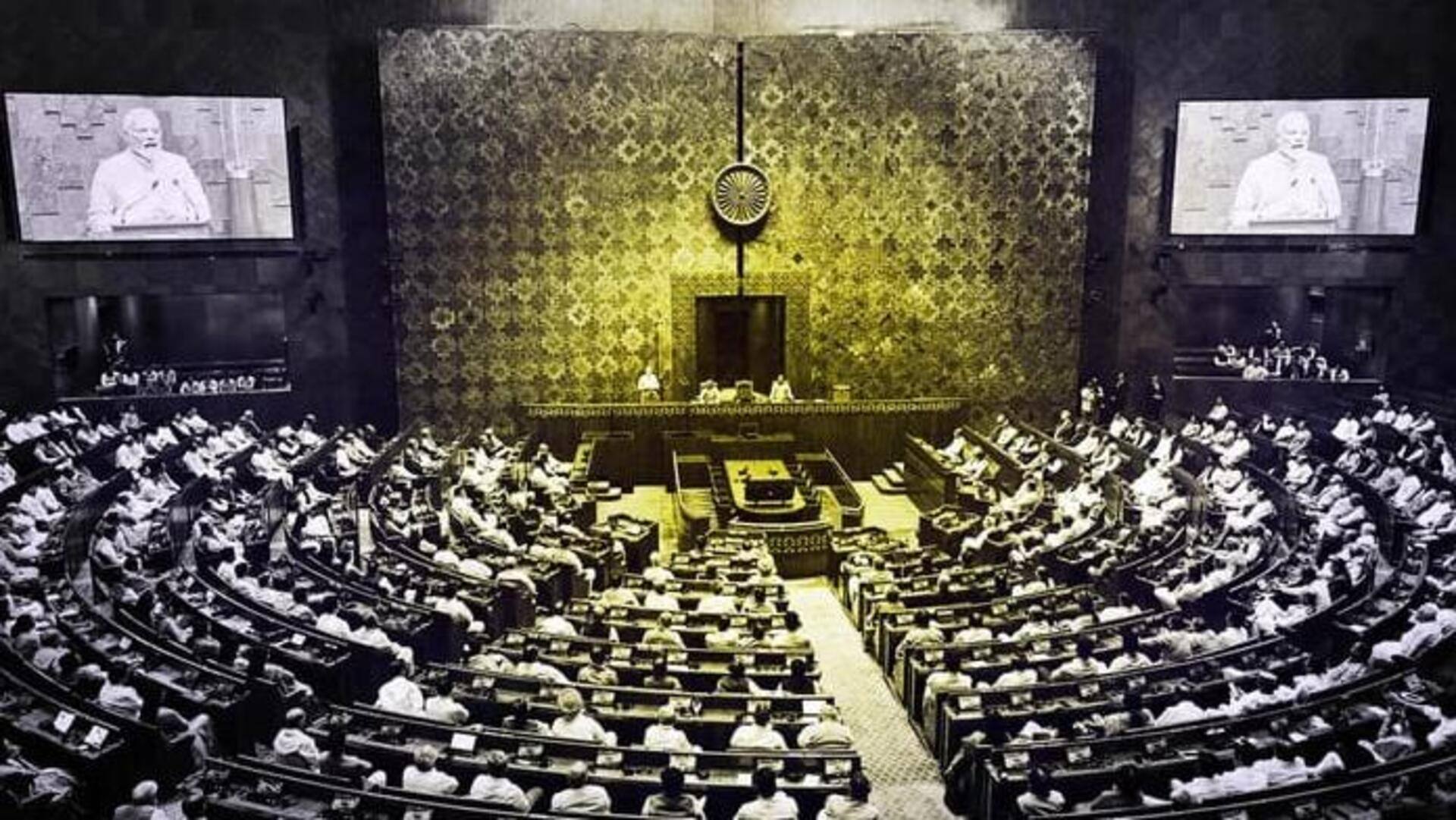
Union Cabinet clears criminal law amendment bills: Report
What's the story
The Union Cabinet on Monday cleared redrafted bills seeking to amend Indian criminal laws, allowing Union Home Minister Amit Shah to table them in the ongoing Parliament Winter Session, per NDTV.
However, Prime Minister Narendra Modi and the cabinet opposed two suggestions of the Parliamentary Standing Committee of Home Affairs—concerning adultery and homosexual sex.
The proposed legislation aims to replace India's British-era criminal laws.
Context
Why does this story matter?
The Centre has listed three bills—Bharatiya Nyaya Sanhita Bill, Bharatiya Nagarik Suraksha Sanhita, and Bharatiya Sakshya Bill—for the ongoing Parliament Winter Session.
The proposed bills will replace the Indian Penal Code (IPC), the Code of Criminal Procedure, and the Indian Evidence Act.
Notably, they were introduced in the Parliament in August and subsequently sent for review by the Parliamentary Standing Committee on Home Affairs.
Details
2 recommendations go against SC verdicts
In its report, the Parliamentary panel recommended adultery as an offense be retained in the Bharatiya Nyaya Sanhita Bill. Notably, it was struck down by the Supreme Court in 2018.
Its other recommendation involves penalizing non-consensual homosexual acts per IPC Section 377.
However, PM Modi and the cabinet agreed not to accept both recommendations as they would contradict previous verdicts by the apex court.
Insights
Bharatiya Nyaya Sanhita Bill 2023
One of the main provisions of the Bharatiya Nyaya Sanhita (BNS) Bill is to remove sedition as an offense.
A new offense of the "terrorist act" has been introduced, which wasn't covered under the IPC. In addition, offense about "organized crime" has also been included.
Under the proposed bill, sexual intercourse with a woman, wherein her permission has been obtained deceitfully, is punishable.
Details
Legislation omits Article 377
The new bill omits Section 377 of the IPC, which punished "sexual intercourse against the order of nature against any man, woman, or animal."
Notably, Article 377 of the IPC could be used to prosecute the rape of men, but its deletion has created a loophole.
Hence, the Parliamentary Standing Committee on Home Affairs recommended bringing this provision back.
BNSS
About Bharatiya Nagarik Suraksha Sanhita Bill 2023
The Bharatiya Nagarik Suraksha Sanhita (BNSS) Bill mandates forensic investigation in cases involving crimes punishable with seven years or more of imprisonment.
Another pivotal provision of the BNSS is for when an offender has absconded to avoid trial, and their arrest cannot be made immediately. In such cases, the trial could be conducted and judgment could be pronounced in their absence.
BSB
Bharatiya Sakshya Bill 2023
The Bharatiya Sakshya Bill (BSB) states that all electronic evidence could be considered primary evidence, adding it to the definition of documents. It also dismisses earlier provisions that marked electronics as secondary evidence.
Notably, under the Indian Evidence Act, a fact learned from the information provided by an accused person in police custody may be admitted. The new bill also retains this provision.